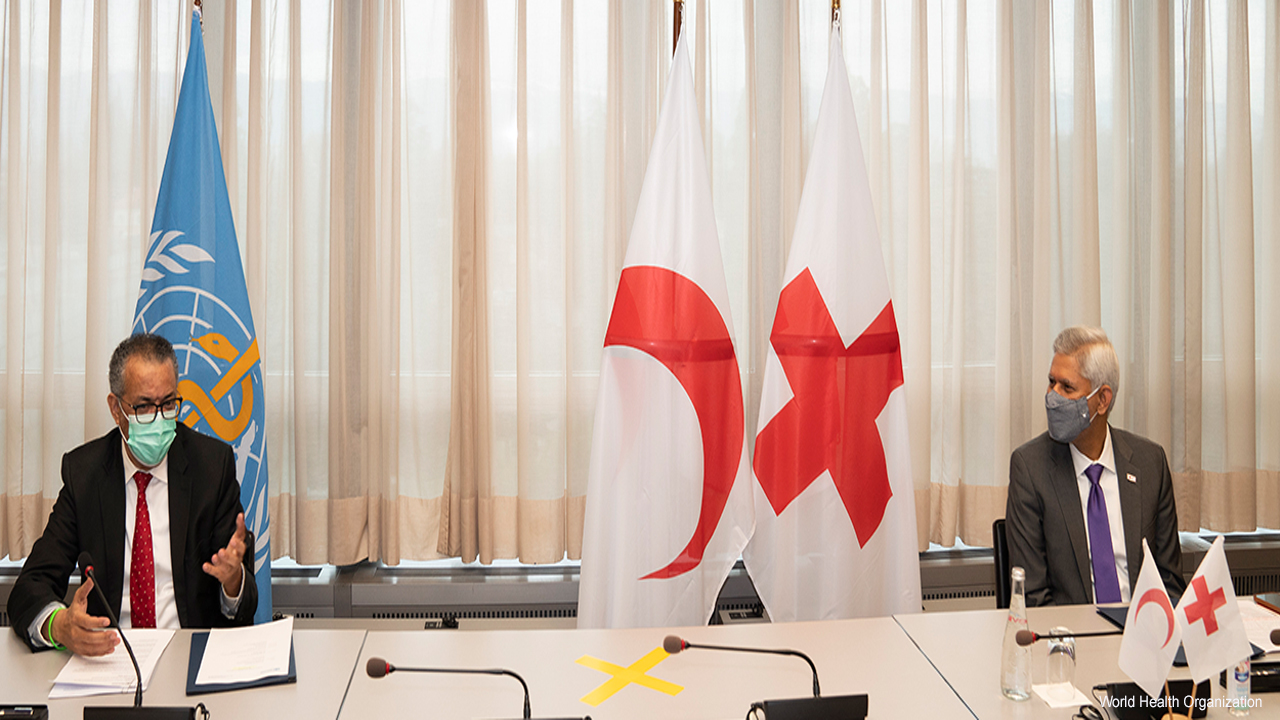The World Health Organization and the International Federation of Red Cross and Red Crescent Societies (IFRC) today launched a new collaboration to strengthen the delivery of emergency medical and health services during humanitarian crises.
WHO Director-General Dr. Tedros Adhanom Ghebreyesus and IFRC Secretary-General Mr. Jagan Chapagain signed a memorandum of understanding to cooperate on implementing the Emergency Medical Team (EMT) initiative.
“We thank the IFRC for their support from the onset of the EMT Initiative and we look forward to this continued partnership in improving the quality of care in emergencies,” said Dr. Tedros. “With the COVID-19 pandemic and the significant increase in emergencies around the world, this agreement could not come at a better time.”
Mr. Chapagain said IFRC was committed to working side-by-side with WHO in providing life-saving health services to communities affected by humanitarian emergencies.
“This MoU will allow us to standardize our emergency health response work and provide increased support for National Red Cross and Red Crescent Societies which play such a crucial role in emergency response,” Mr. Chapagain said. “We are very committed to working together with WHO to provide quality emergency health services that communities desperately need in times of crisis.”
The MoU, also known as the Red Channel Agreement, is the culmination of years of collaboration between IFRC and the WHO Emergency Medical Team Initiative.
The new agreement will bring more synergies to health emergency response between the two international organizations, particularly in technical standards, accountability, and coordination.
It aligns the IFRC’s system with that of the WHO Emergency Medical Teams global classification system, in doing so recognizing the IFRC’s Emergency Response Units as EMTs and heightens the involvement of IFRC teams and National Red Cross and Red Crescent Societies in the capacity building efforts of the EMT network.

 The World Health Organization and the International Federation of Red Cross and Red Crescent Societies (IFRC) today launched a new collaboration to strengthen the delivery of emergency medical and health services during humanitarian crises.
The World Health Organization and the International Federation of Red Cross and Red Crescent Societies (IFRC) today launched a new collaboration to strengthen the delivery of emergency medical and health services during humanitarian crises.









.jpeg)








.png)
.png)

.png)
.png)
.png)

.png)
.png)
.png)

.png)
.png)